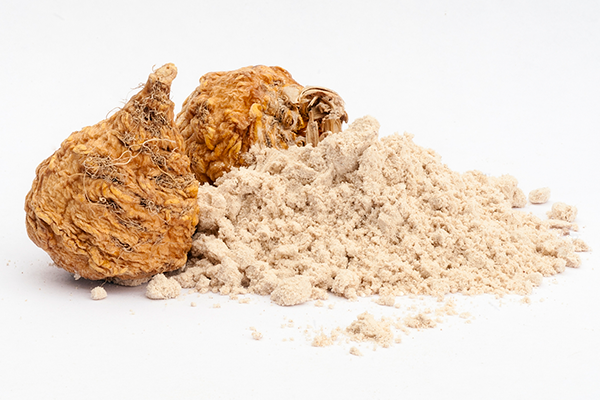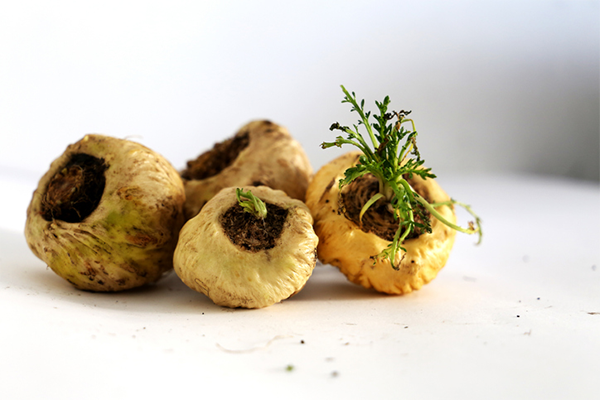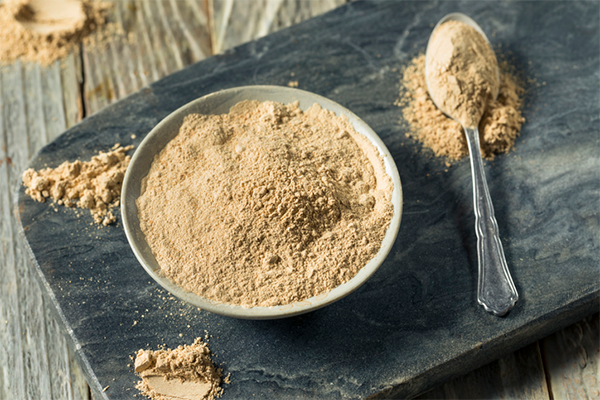You may have seen maca crop up at a local coffee shop or as an add-in at a smoothie bar, but this trendy superfood isn’t new.
Maca is a centuries-old plant that’s been hailed as an aphrodisiac and fertility aid.
But before you order up a maca latte and get your freak on, we’re here to tell you what this magic root is all about.
What Is Maca?
Maca — not to be confused with matcha — is in the Brassicaceae family which includes cruciferous root vegetables like cauliflower, broccoli, and cabbage.
It has been cultivated and used in Peru for more than 1,300 years as both food and medicine.
There are three types of maca (scientific name Lepidium meyenii): red, black, and yellow, the last being the most common and most researched variety and commercially preferred.
While maca root is what you’ll find in nature, you’ll likely find it sold in stores as maca powder, which allows for quick and easy consumption.
Some people claim that this is a superfood marvel, as it’s touted globally for its potential fertility benefits, ability to improve endurance and athletic performance, antidepressant-like qualities, help women manage symptoms of menopause, and more.
We reached out to the experts and sifted through the studies to find out how much of this is based in science.
Maca Benefits
As with many superfoods, research suggests maca has great health potential, but it’s certainly not a panacea.
“It’s not something that’s going to cure all your ailments or help you lose weight quickly,” says registered dietitian Andrea N. Giancoli, MPH, RD.
But there are a few potential benefits of this superfood, which is high in high in amino acids, vitamins, and minerals.
It’s is considered an adaptogen, meaning it can help the body adapt to stress. Studies suggest maca may also help people with fatigue and anxiety, too.
For women, maca has potential estrogenic activity, which can be beneficial in some cases.
“In women, maca seems to be most beneficial to relieve menopause symptoms such as night sweats, hot flashes, depression, or sleep dysfunction,” says Mascha Davis MPH, RDN, private practice dietitian at Nomadista Nutrition.
As for men, “maca has traditionally been used to increase libido, raise testosterone levels, and support prostate health,” Davis says.
Maca Side Effects
Maca is generally considered safe in small amounts, but there’s no research out there that tells us its safe in children or pregnant or nursing women.
People suffering from hormone sensitive conditions might want to stay away from it since it can potentially act like an estrogen, Davis says.
Though it would be rare to eat it in any other form in the U.S., it’s best to consume it in its cooked state (which is how you’ll find it as a powder).
“Fresh, raw maca may give you stomach pain,” Giancoli says.
Can Maca Help You Lose Weight?
“There isn’t great research on maca for weight loss or weight maintenance,” Giancoli says, “but there’s limited research in rats that found they didn’t gain weight when they took supplements of maca — so it may help with maintenance.”
It’s potential to help people lose or maintain weight may have more to do with its ability to perk us up.
“It may make you feel more energized,” Giancoli says. “And if you feel more energized, it may help you have a better workout.”
Davis agrees: “Maca does not directly help you lose weight, though it might boost your energy levels and increase your motivation to be active,” she says.
How to Use Maca
Maca is described as having a bitter taste and pungent smell — which doesn’t make it the most palatable.
But the good news here is that it’s less-than-pleasant flavor profile may prevent you from consuming too much of it.
As of right now, there’s no long term research on how much of this superfood is safe to consume every day.
According to one study, “Up to three grams (of maca powder) daily is safe for four months — beyond that we don’t know,” Giancoli says.
But there are many ways you can incorporate those three grams into your diet.
You can use maca in recipes or sprinkle it on top of your food: “It can be put over cereal or a salad, or in a smoothie or soup,” Giancoli says. “It’s pretty versatile.”
Where Can I Buy Maca?
You’ll most commonly find maca powder in health food stores, some grocery stores (like Trader Joe’s), and online.
You may also find gelatinized maca powder, which can be easier for some people to digest because it’s indigestible starch is removed during the gelatinization process.
But make sure you look for maca that’s grown and processed in its native area, the Andes mountains of Peru.
Because this superfood’s popularity increased so quickly in the last 20 years or so, it’s not always grown and manufactured the way it was hundreds of years ago.
Depending on where you source it, it may have been grown with fertilizers and pesticides, which can alter the quality and safety of the final product.
The Takeaway
Each and every maca health claim doesn’t necessarily have scientific evidence to support it.
More research is needed before we can confidently say this is the superfood supplement we’ve been dreaming of.
That said, can a teaspoon of quality maca powder here and there be a part of a healthy lifestyle? Sure! Just don’t view it as a miracle food.


